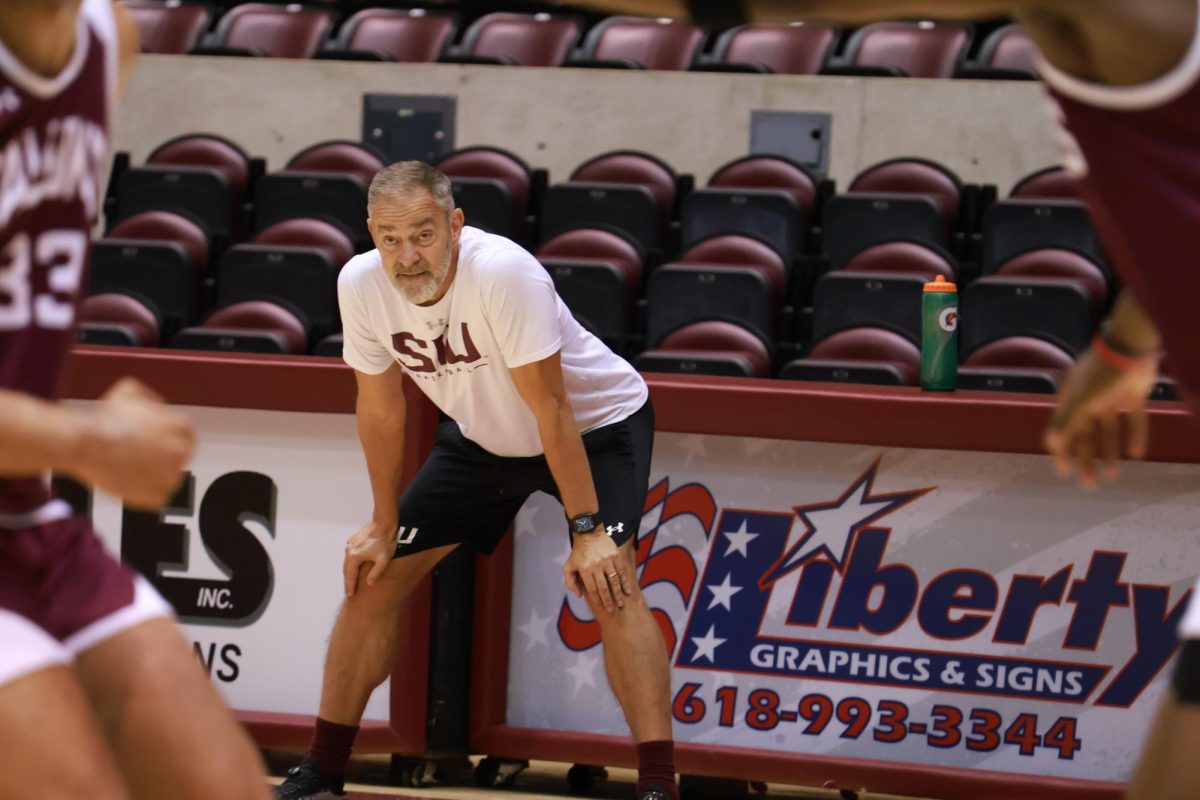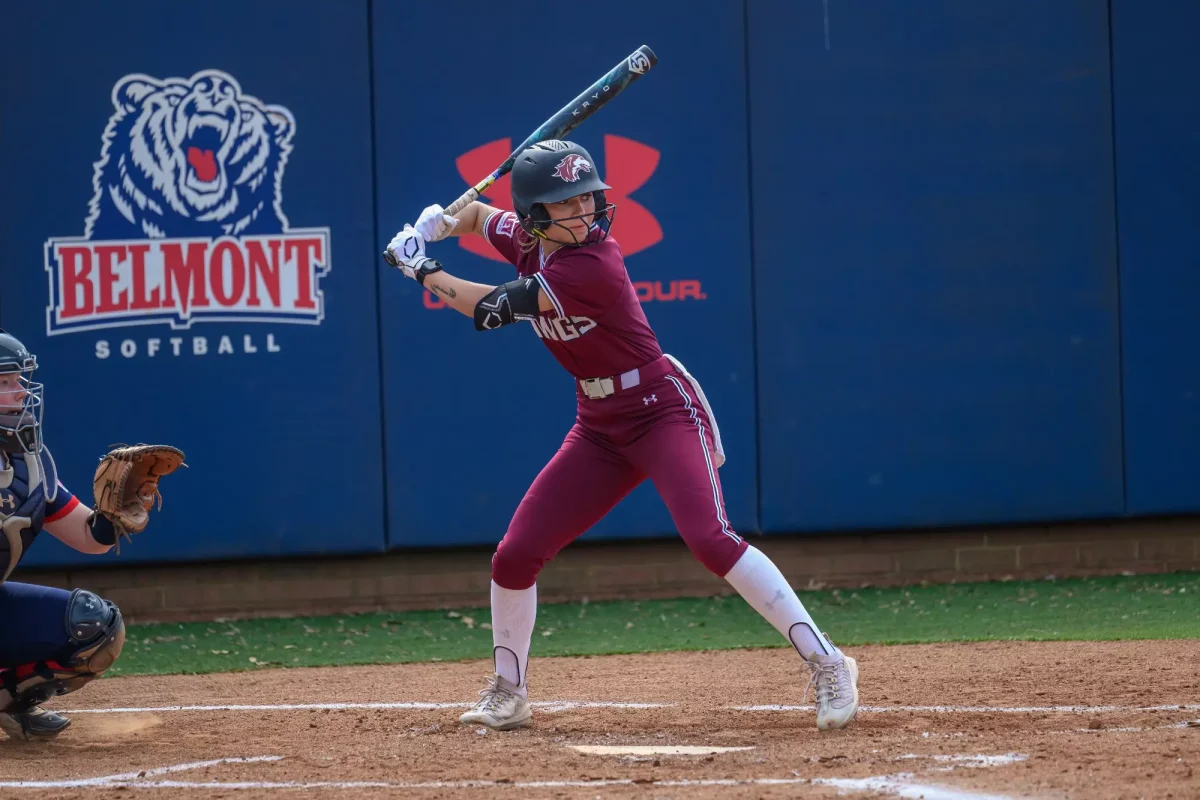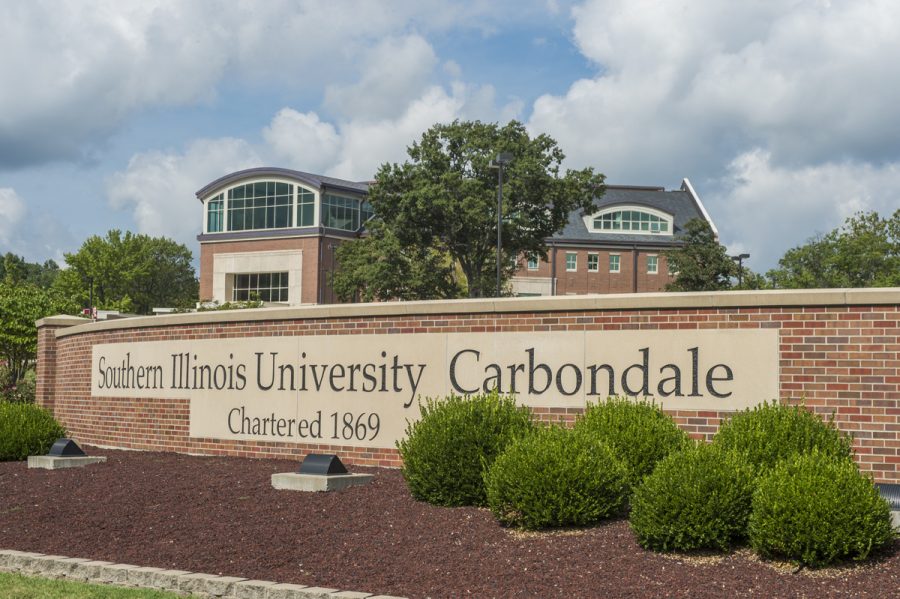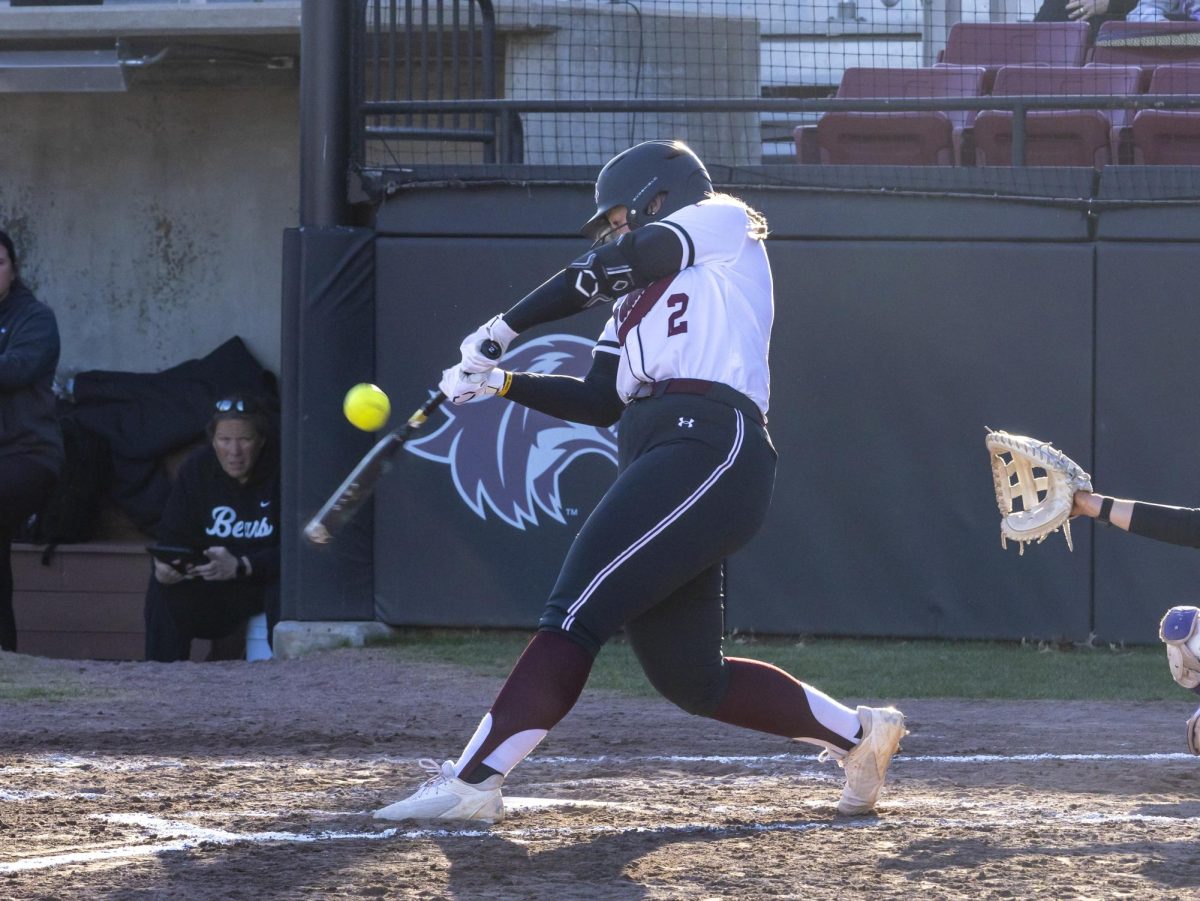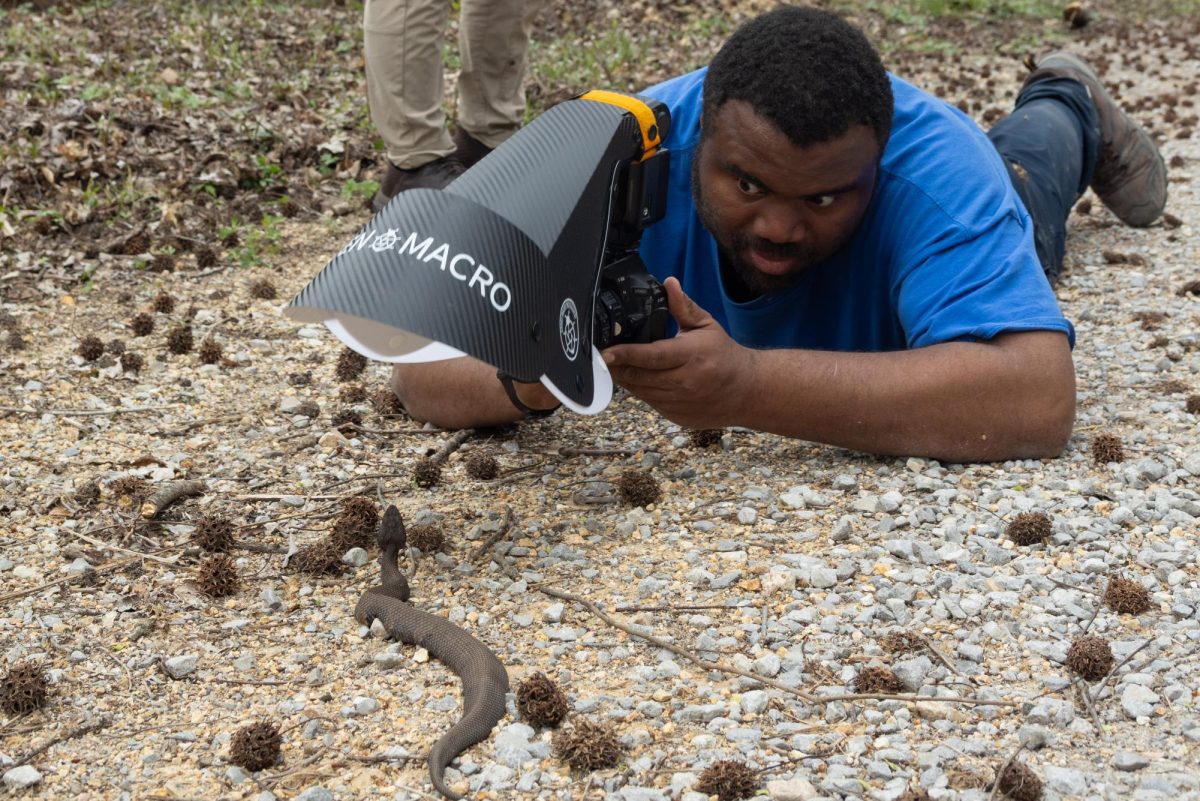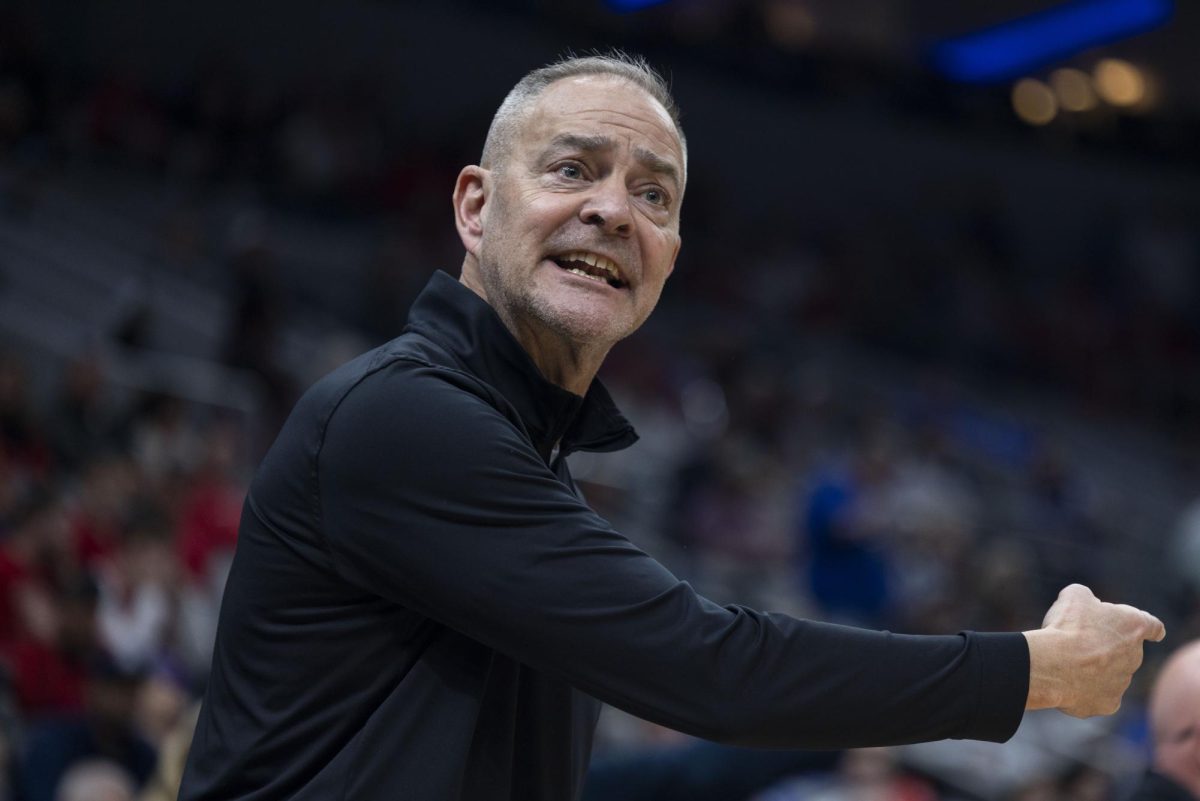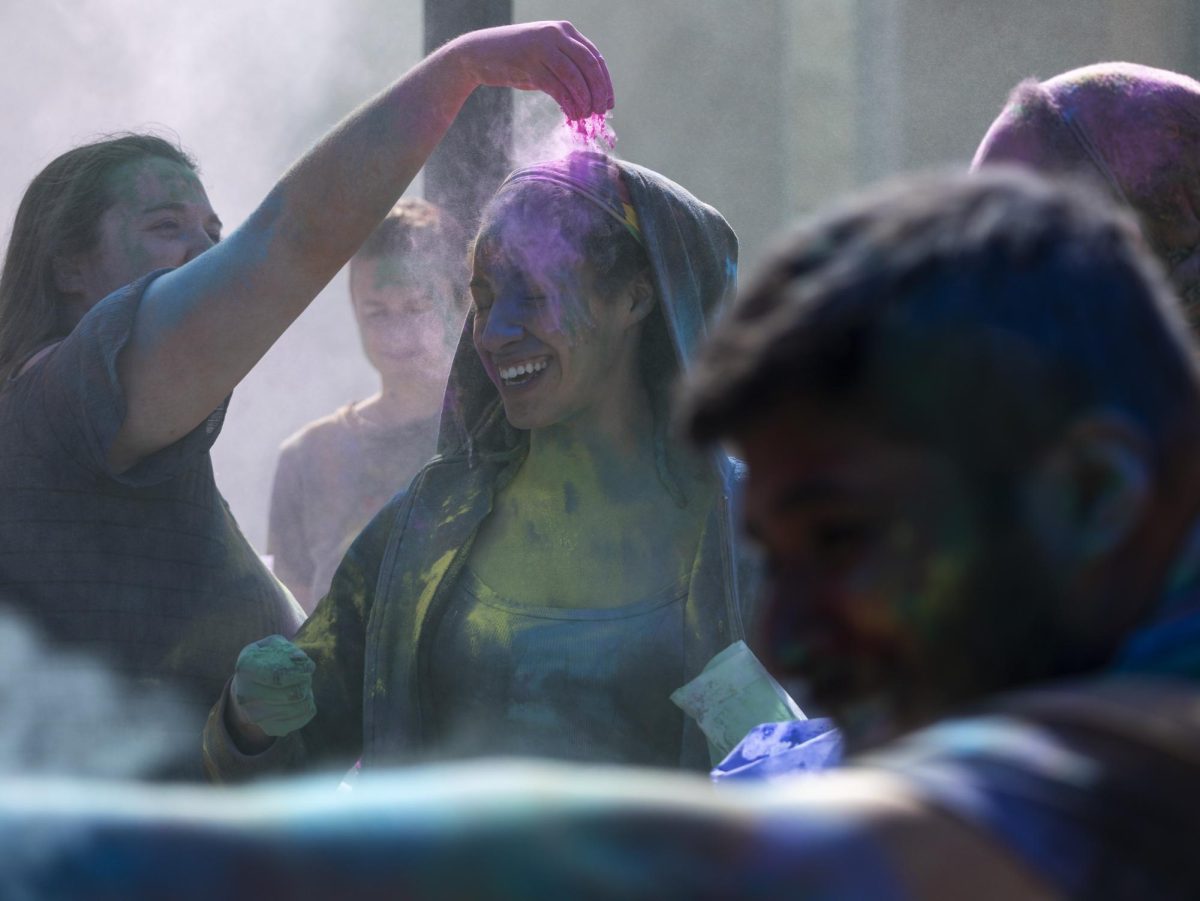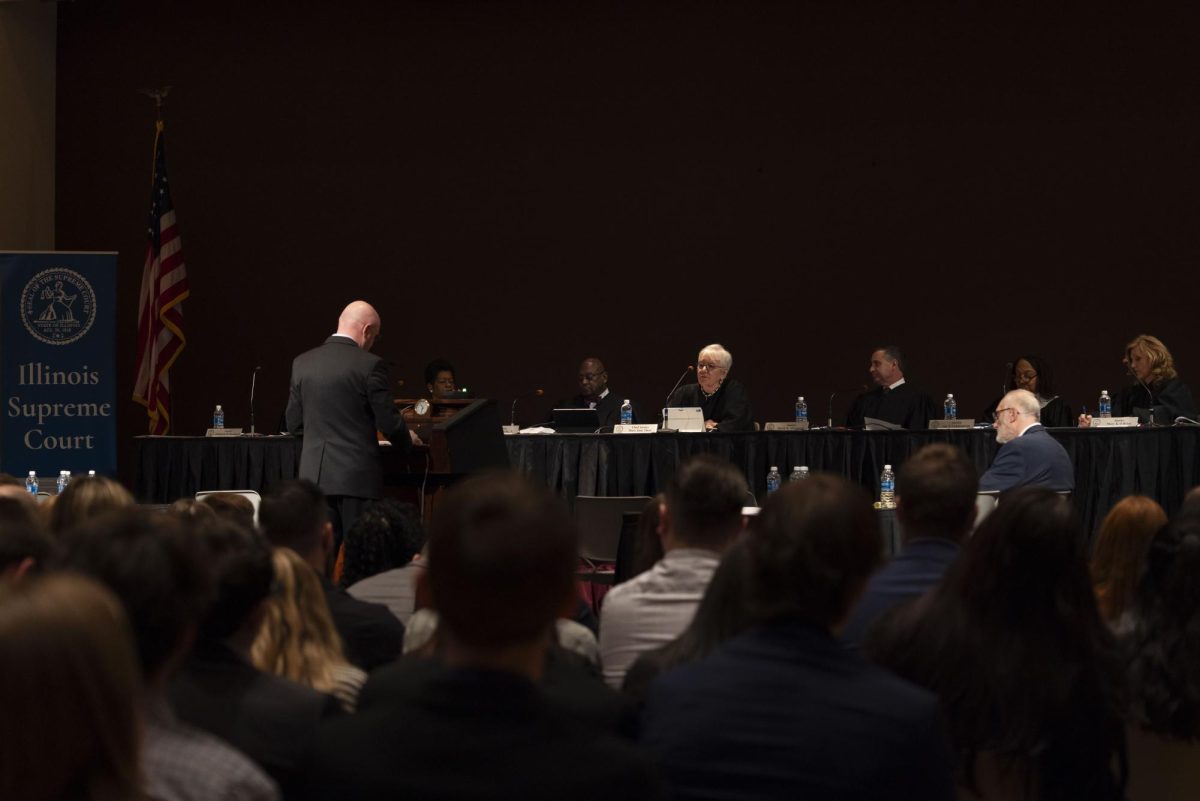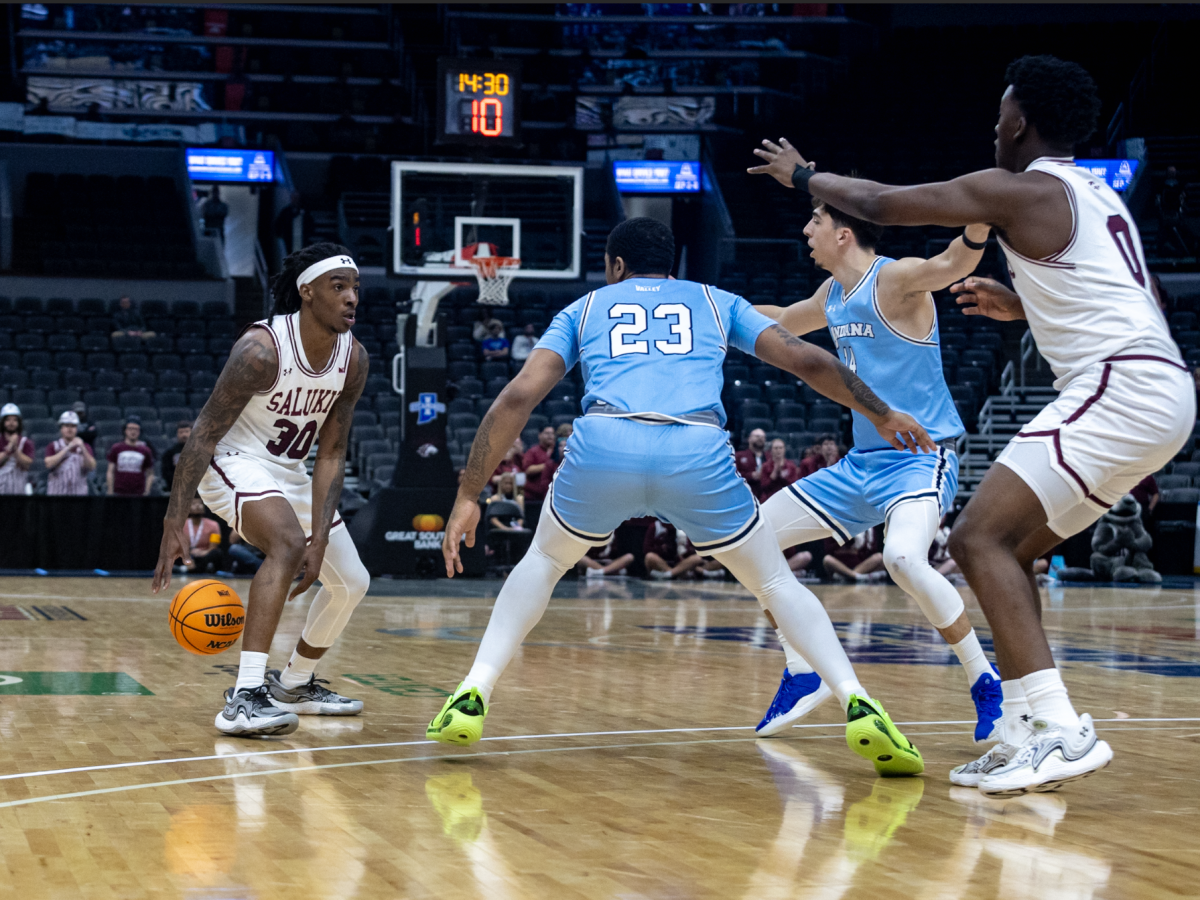During practice, head basketball coach Scott Nagy yells plays at his players, watching intently and keeping them on their toes.
Nagy was hired earlier this year following the departure of former head coach Bryan Mullins after the end of the season with the round-one loss against the UIC Flames at Arch Madness.
Advertisement
The contract he signed has a base salary of $600,000, and if the team makes certain tournament appearances such as a bid for the NCAA tournament or a final game appearance in the Missouri Valley Conference could add an increase of $50,000 to his salary.
Previous schools Nagy’s coached at include the one he recently transitioned from, Wright State University, and South Dakota State University which he helped transition from Division II to Division II after their 2003-04 season.
After a long practice Nagy’s day is just beginning having meetings, participating in community events and preparing for the upcoming season
Advertisement*
During today’s practice, Nagy said the main thing the players need to focus on is less turnovers.
“Too many turnovers right now, some of that just comes from none of these guys have played for me, so they’re still trying to learn the system,” Nagy said. “There’s some unsureness that goes with that and that leads to turnovers, so they’re learning that we’re getting better.”
Nagy said it’s a lengthy and difficult process for him to get the athletes to play the brand of basketball he’s used to, but that’s simply the cost of building a program in the NIL (Name, Image, and Likeness) era.
“When I left Wright State, for example, I had six players last year that had been with me for four or five years. We were one of the top countries in scoring. We led the country in field goal percentage,” Nagy said. “But those guys knew our offense intimately, where our guys now aren’t even close to, you know, none of them have had any of the experience those other guys had.”
One of the biggest challenges Nagy and his staff are facing is getting the players to be comfortable offensively. Many of them aren’t used to running the type of offense Nagy wants to implement.
“Most people aren’t used to throwing the ball opposed. The game has become more one on one, and everybody stands around and watches that player play,” Nagy said. “I don’t like to play that way. And so I’m having to change the way guys think; I’m having to get them to see the way I see the game. It just takes a while.”
Out of all schools Nagy coached at, he said SIU is the most similar to his time at South Dakota State, as both SDSU and SIU are the only big sports schools in their respective regions.
Wright State came with many other big hitting athletic programs in neighboring cities.
“Where I was in Dayton didn’t have football. We were a small fish in a big sea because we had Ohio State and Xavier and Cincinnati and Miami,” Nagy said. “This has a different feel to it.”
Something Nagy’s learned while coaching is whatever schools he’s at, he has to sell it on the strengths it already has, he said.
“I like being back [at a] school that has football. I think it gives it a better campus feel,” Nagy said. “We had more of a city campus at Wright State [and] didn’t see students a lot, so I like seeing people out on campus walking around looking like it’s busy.”
While Nagy is seeing more students, there’s one important group that he isn’t seeing as much of: his family. Leaving them in Dayton after building and growing there for eight years was the hardest part about coming to SIU, Nagy said while looking at a picture of them on the wall of his office.
“They were all near us, within 30 miles, granddaughters, and now we have another one on the way,” Nagy said. “But the three boys in that picture are my three oldest, and then the two girls on the end our daughters Naika, we adopted from Haiti when she was two and a half.”
Nagy came here with just his wife, Jamie, and hopes that conveys his commitment to this job, he said.
“That we would be willing to leave that because we kind of had it where we wanted it. We got to see our grandkids all the time around our family,” Nagy said. “But this was too good opportunity for us we felt like.”
According to his staff profile on the SIU Website, Nagy played at Delta State in Cleveland, Mississippi in 1988 after helping the team get to three Division III tournament appearances. In recognition of a standout career, Nagy was inducted into the school’s Athletics Hall of Fame in 2001.
The only thing that’s changed since Nagy played was the introduction of the three-point line, he said.
Nagy said after popular NBA players like Stephen Curry came into the game, the three-point shot has become more of the norm.
“They put [the] three-point line in when I was a junior. You know, it’s been expanded since then, it’s moved farther away from the basket,” Nagy said. “That’s probably the biggest change, the three-point line has just, continue to become more a part of the game where everybody that plays thinks they have to be able to shoot the three.”
Nagy also notes some key differences between the DI and DII levels isn’t the coaching, but the extra work that comes with it.
“I would say what a coach has to do at the Division II level compared to what a head coach has to do at Division I level. You’re more of a figurehead,” Nagy said. “I mean, there are just so many more things that are on a plate, and you’re more visible… don’t have anything to do with really coaching the basketball team or recruiting.”
With being a figurehead for the program, Nagy said it’s essential to have a good staff behind him.
One of those major differences came about within the last couple of years: NIL, or name, image and likeness deals, which allow players to profit off their image. When it comes to those deals, Nagy said he’s not convinced it works well in the player’s favor.
NIL is for student athletes to be a brand and receive payments from sponsorships and other third parties separate from their school.
“It’s become almost a mercenary mentality, where whoever pays me the most, that’s where I’m going,” Nagy said. “ I’m not saying that money’s not important, but if that ends up being the only decision over everything else, and I think it happens quite a bit, then what?”
Nagy believes sometimes players leave a basketball situation already good for them for somewhere else offering more money, but not the same level of basketball, he said.
“They’re used to being the star here, now they’re just a role player,” Nagy said. “So…, even though they’re making a bunch more money, they’re unhappy because the basketball is not the same.”
Nagy also holds a somewhat unconventional belief, at least among coaches: he said he believes that players should have contracts and buyouts similar to what coaches have.
“If a player’s going to come here and get NIL, then I think he should sign a contract, and there should be a buyout,” Nagy said. “If he goes somewhere else, he should either have to pay us, or the other school should have to pay us for him to go there for you know, because we’re putting investment in him.”
Nagy said he does feel that NIL is important, but wants to make sure that the principles of the sport are still considered.
“So we have to understand and consider that money is important. Get as much money as we can for NIL, but we also have to merge it with our values,” Nagy said. “We can’t just throw our values out the door and just go throw a bunch of money at people, because they could not be the right people.”
When it comes to people’s expectations for him as a coach, he said he hopes in due time people expect the best from the team. Nagy said he prefers to not concern himself with the media and news, because if he’s worried about outside opinions, it impacts his coaching.
“I’ve learned to shut all that out, all the outside noise, and really limit the information I get,” Nagy said. “If I want to know something, I ask my assistant coaches because they keep track of all of it.”
Nothing is different about the basketball besides the players, Nagy said. Carbondale does mirror Brookings, South Dakota — home to South Dakota State — with a more rural feel than Dayton, Ohio.
“We like living in a more rural area, and we still have plenty of options. We don’t live far from Marion,” Nagy said. “There’s some things about a city like Dayton that are convenient, that you can get to and and you know, we were close to Cincinnati, so we would just, you know, outside of basketball, we had more options and more cultural things.”
Nagy said he spent 21 great years in Brookings and it was a good place to raise his children, but he and his wife will be happy wherever they are.
When it came to building his staff, Nagy said it was mostly interviews. Only two members of the staff from the previous season were retained.
“A couple of guys we kept that were on staff last year,” Nagy said, listing assistant coach Jevon Mamon as an example. “It just helps to have somebody that knows the system here, knows the players that stayed, and so then the other one was Justin Endsley, he’s our director of basketball operations.”
Mamon is going into his sixth year with the team, after working with previous coach Bryan Mullins.
“Transitions [have] been pretty good, obviously, two different personalities,” Mamon said. “I mean…30 years as head coach, he has a great idea of how he already wants things done.”
Mamon said Nagy’s one to stick to how he does things but is also open to suggestions from staff. He’s someone he’s excited to learn from him as they continue to work together.
“I think the guys know what they expect from him. He does a great job of connecting with him individually,” Mamon said. “I feel like it was one of the easy transitions, even though when you’re learning 13, 14 new personalities and new guys and everybody’s trying to learn him and what he demands from guys, it definitely takes some time.”
Expectations that the entire staff holds for the team are for them to be able to complete every hard possession and keep a high level of physicality throughout the game, Mamon said.
“We want to be the most competitive, the most physical group, to almost where we will the other team to break,” Mamon said. “As every coach… when you start talking about plays and things of that nature, obviously want a high level execution. But if the effort isn’t there, it’s going to be hard to execute anyway.”
Endsley is going into his second year as director of operations after being a student manager for the team for four years.
“It’s obviously been a big change, obviously with the staff transition back in March, my future was uncertain,” Endsley said. “I didn’t know what I was going to do, and I was fortunate enough in early April to get a call from Coach Nagy, and got to meet with him, and he offered me the position to stay back and be his director of operations.”
The process of rebuilding the team was a big task, but a good learning experience for Endsley to learn more about Nagy and his way of coaching, he said.
Endsley also noticed what seems to be a common factor: Nagy’s intensity.
“He demands a lot out of his players and staff as well, but he gives everyone a little bit of freedom to do it the way they want to do, as long as everyone does it the right way,” Endsley said.
With a lot of new players comes athletes that play different types of basketball, so a big focus is making sure the team meshes well together while on the court, Endsley said.
“He’s a man of faith, man of few words, but he expects a lot out of his staff and players,” Endsley said. “I think that part is really going to help us grow as a team and into the culture that he wants to create here at Southern Illinois.”
To stay up to date on all your southern Illinois news, be sure to follow The Daily Egyptian on Facebook and @dailyegyptian on X [formerly known as Twitter].
Jamilah Lewis can be reached at jlewis@dailyegyptian.com. To stay up to date with all your southern Illinois news, follow the Daily Egyptian on Facebook and Twitter.
Advertisement



